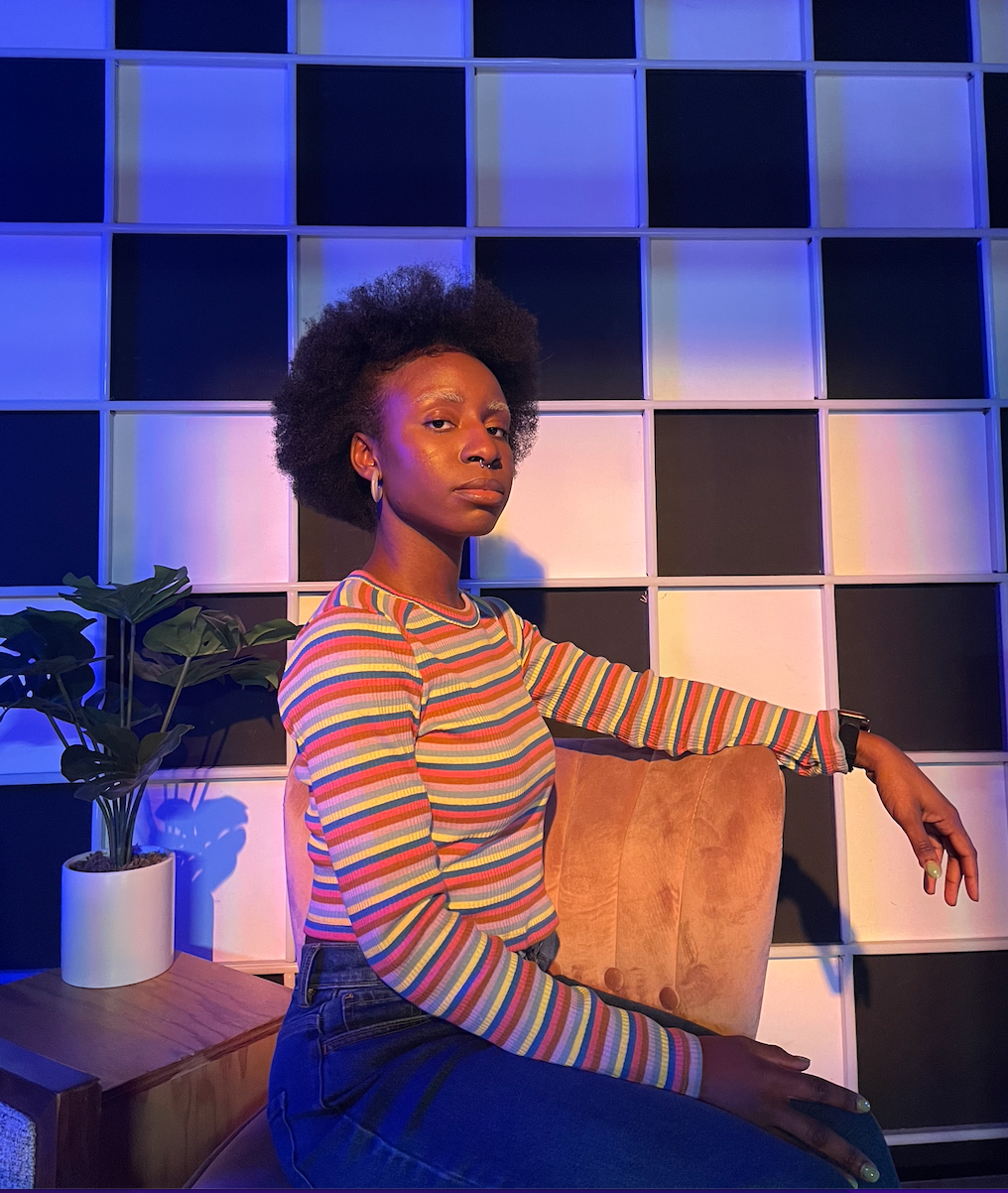
Why do you love teaching, poetry, or performance?
I always say that poetry is my first language. The reason why is because when I was very young, I didn’t know how to articulate that I was struggling with my mental health, and I didn’t know how to express how negative experiences impacted me. However, I liked to write, and although fiction stories were my first interest, when I discovered that folks were baring their hearts through poetry, I knew that was my path to expression. I love teaching specifically poetry because I think everyone should have access to finding that path. Even if you only write for yourself and no one ever reads it, there’s so much freedom in speaking out your qualms and celebrations.
Artist Statement

Before I knew anything about stanzas, or sentence structure, or genre, I fit all of myself in the space between a pen and paper whenever I had the opportunity. As an adult, I can vocalize that I am an “interdisciplinary writer” but when I was ten, all I knew was that I would write whatever desired to exist. Poetry is my first language. While I have to sit and meditate over scripts and articles, poems force themselves out of me–poems are urges. They synthesize as I draw breath, they materialize whether I am ready for them or not. I’ve heard that someone becomes a master after putting 10,000 hours into a craft or skill. For me, I have dedicated well over that number, but poetry cannot be mastered. Instead, these words have put tens of thousands of hours into mastering me. So here I am, all these years later, constantly being read by words that I wrote, still finding room to fit myself between pen and paper. I explore other forms of writing in schooling and in my career because, while poetry speaks for me, I need an avenue to hold a microphone to the folks around me. I need to invoke their names in the news, and describe their faces on the screen. While these forms of writing differ from poetry, being a student to the page for most of my life has taught me how to learn. I can write anything that desires to exist. It is my job to translate imagination into words in whatever shape or size.
For a long time, I believed that grief and pain were the ugliest parts of my work. Trauma, unresolved feelings, these were the bottoms of my feet and my dry bones pressing into the dirt; nothing to be proud of. But when I taught poetry for the first time in my adulthood, I wanted the young people I was sharing space with to abandon their shame as they spoke about their lives. How could I help anyone believe that if I did not believe that myself? Among other things, my work seeks to destigmatize the way we discuss pain. I may use imagery and flowery language, or I may just tell the story in its plainness. What makes a piece poetic is not just the verbiage that I use, it’s the sound of my voice when I speak it and the meaning those words carry. There is poetry within being honest about what I have experienced. There is artistry in just describing what happened. Deeper pieces are not beautiful because they expose our scars, they’re beautiful because as we speak those words out, we validate our experiences and emotions, and then we give them freedom to live somewhere aside from our minds.
You can find more information about Chima “Naira” Ikoro at:
Linktree – linktr.ee/chima.naira
Poetry section at South Side Weekly – The Exchange
Achievements
- The Skatepark Project Fellow (2022-2023)
- Women of the World Poetry Slam Finalist (2020)
Writing Workshops
7/8/2022 “Before the Storm Passes“
For more visit the artist’s Stay Making page
Curriculum Example
My Body, A Bridge:
a somatic abolitionist writers workshop
co-facilitated with Robin Reid Drake
A somatic abolitionist writers workshop uses this embodied practice, a culturally responsive and socially critical form of meditation and mindfulness, as a path of entry to a writing practice. Both writing and meditation call for the cultivation of a deep and ongoing relationship with one’s inner life in order to navigate and affect the outer world we live in. This workshop will pair mindfulness exercises with writing activities to unite body, mind and voice and support its participants in building “right relationship,” or the idea of an inherent interconnectedness of all beings and the earth, a core tenant in spiritual, wisdom & liberation traditions across the world.